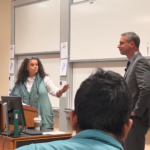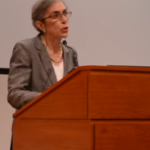Bench Press
President Obama won’t be in power for 30 or 40 more years, but his hard-Left ideology could rule for decades to come. At just 50-years-old, the President’s pick for the Supreme Court, Elena Kagan, would be the youngest justice on America ‘s most important bench.
Hired for life without any accountability, Kagan has the unique opportunity to channel the President’s ultra-radical agenda long after he’s gone. And channel it she will.
As Ken Klukowski, legal expert and co-author of Ken Blackwell’s new book, wrote today, Kagan would be a dream appointment for this administration. “She’s a liberal without a paper trail. She’s never… had to lay out her beliefs on hot-button issues… [but] Obama has a massive vetting team in place, and the only candidates on his short list are people who have been vouched for by some of the President’s most trusted advisors… [who] have a firm grasp of her interpretation of the Constitution.”
While her lack of experience will benefit the White House, it’s sure to cause some concern in the U.S. Senate. The Washington Post says her qualifications for the court “can only be called thin.” “[Even] her professional background is thin.”
Kagan has zero judicial experience–despite Americans’ belief that it is the “single most important factor” in naming a justice. In announcing her nomination, President Obama predicted that she would bring leadership to the court–but even that is speculation.
No one knows how she would fare as a judge, because, unlike every other justice on the Supreme Court, she’s never been one! CBS was blunt about her credentials (or lack thereof). “Kagan has been nominated with no judicial experience, a mere two years of private law practice, and only one year as Solicitor General.”
Meanwhile, the President hailed her as a “consensus-builder,” when, in fact, Kagan’s most recognizable act was debasing the entire U.S. military. Controversy-building, yes. Consensus-building? Hardly.
She attacked “Don’t Ask, Don’t Tell” as “a moral injustice of the first order” and then tried to ban military recruiters from university campuses as punishment. The position was so indefensible that liberal ideologues like Justice Ruth Bader Ginsburg disagreed.
Even Peter Beinart, a former editor of the Left-leaning New Republic, seems concerned. “The United States military is not Procter and Gamble. It is not just another employer… You can disagree with the policies of the American military; you can even hate them, but you can’t alienate yourself from the institution without in a certain sense alienating yourself from the country. Barring the military from campus is a bit like barring the President or even the flag. It’s more than a statement of criticism; it’s a statement of national estrangement.”
Tony Perkins heads the Family Research Council. This article is excerpted from the Washington Update that he compiles for the FRC.




